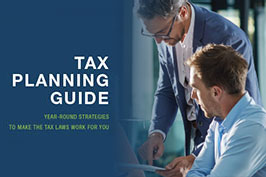Balance sheet rules for S corps
Many companies start out as sole proprietorships or general partnerships, but, as companies grow, so do their structural and financial needs. At some point, they’re going to need to change the type of business entity they’re currently classified as to a new classification. One option is an S corporation. But, it’s important to understand how S corps work before deciding whether this type of business entity is right for your company.
An S corporation is a business entity that passes almost all of its finances through to its shareholders. These finances include:
- Income
- Losses
- Tax deductions
- Tax credits
S corporations do not typically have to pay income tax. A company’s profits are passed onto its shareholders who may have to pay tax on their shares of the company’s earnings. If the S corp reports a loss, the shareholders can then claim that loss on their individual tax returns. The appeal of S corporations for many small businesses is to avoid double taxation.
Do you need to maintain a balance sheet for an S corporation tax return?
Testimonial
The $250,000 rule
Throughout the tax year, you must maintain a detailed balance sheet for your S corporation. When it comes time to file taxes, you’ll be able to refer to this sheet in order to remain organized.
In some cases, it may be necessary to transcribe all of the information found on the S corp balance sheet onto your tax form. In other cases, it may not be necessary to reference this sheet, but you will need to keep the information on file.
Although an S corporation usually does not pay taxes, it does have to file federal taxes which means that you’ll have to complete the federal S 1120 form. At the close of the tax year, if your S corp’s total receipts and total assets amount to $250,000 or more, you are required by the IRS to complete the Schedule L section of the form. This will include a detailed summary of everything on the balance sheet.
The information that you list on Schedule L must precisely match the information that you’ve listed on the S corp balance sheet; keep your complete tax return and the balance sheet for three years in case the IRS chooses to perform an audit on your business.
CTA – Your tax planning guide

Other considerations
Although your S corporation may not have to pay federal tax, and you may end up not needing your balance sheet, make sure to check the tax filing rules for S corporations in your state. Your S corporation may be required to file a state tax return, so you may need the S corp balance sheet to complete this return.
Financial and tax issues can be complicated for businesses, regardless of their size. Therefore, you should consider engaging the services of financial professionals who can ensure that your financial and tax needs are being met. GYL, CPAs for small businesses, is a full-service accounting and business consulting firm, designed to meet all of your financial needs.
